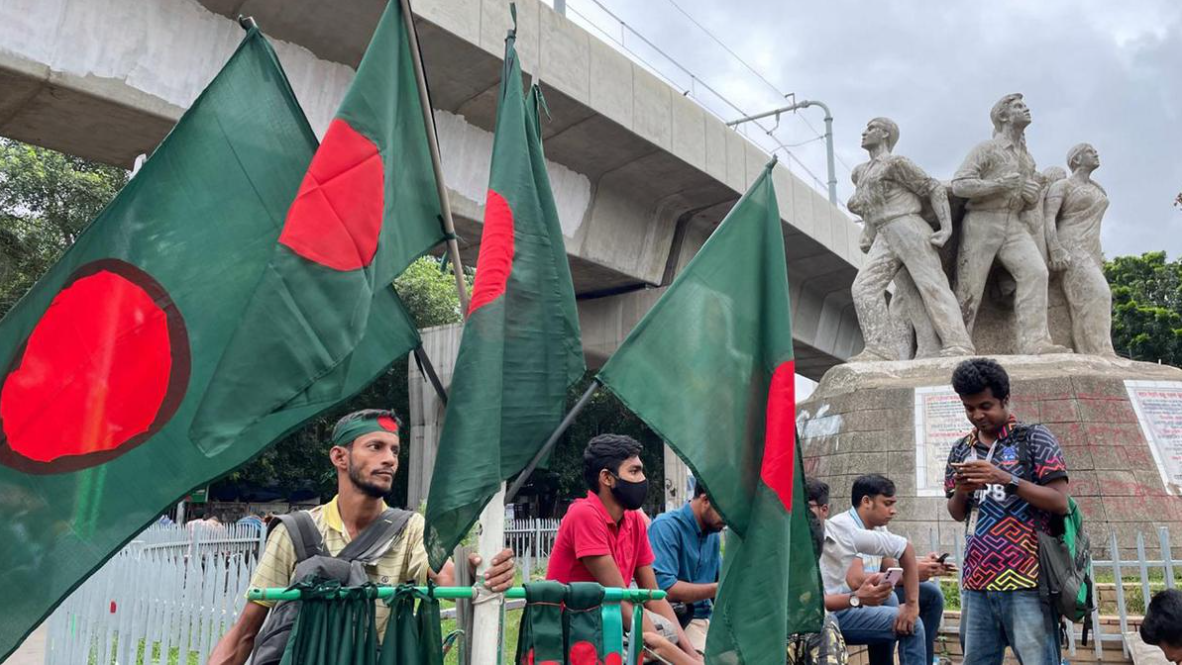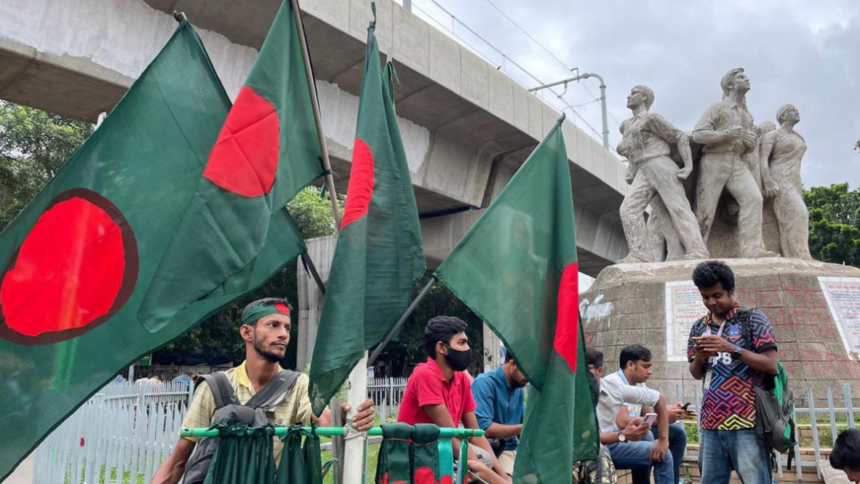Tragedy in Bangladesh devastating incident in Bangladesh has left several people dead after a fire broke out at the Gazi Tyre Factory in Narayanganj. The blaze, which erupted following a violent raid by an agitated mob, has shocked the nation and raised serious concerns about safety and law enforcement in industrial areas. The tragic event not only highlights the vulnerabilities of industrial facilities in Bangladesh but also underscores the escalating tensions and frustrations among local communities, often resulting in disastrous outcomes.
This article delves into the details of the fire, the circumstances leading up to the raid, the response from authorities, and the broader implications for industrial safety and social stability in Bangladesh. Through this exploration, we aim to shed light on the complex interplay of social, economic, and political factors that contributed to this tragedy and examine the lessons that can be learned to prevent such incidents in the future.
The Gazi Tyre Factory Fire: A Timeline of Events
The Gazi Tyre Factory, located in Narayanganj, is one of the largest tyre manufacturing facilities in Bangladesh, employing hundreds of workers. The factory has been a vital part of the local economy, providing jobs and contributing to the region’s industrial output. However, on the fateful day of the fire, the factory became the epicenter of a tragedy that claimed multiple lives and left many others injured.
The Mob Raid: What Sparked the Violence?
The incident began with a raid by a large mob, reportedly consisting of local residents and workers. The exact cause of the mob’s anger is still under investigation, but preliminary reports suggest that it may have been triggered by grievances related to labor disputes, poor working conditions, or environmental concerns. Some witnesses claimed that the mob was protesting against alleged exploitation of workers, while others pointed to disputes over land and resources.
As tensions escalated, the mob broke into the factory premises, causing widespread panic among the workers and staff. The situation quickly spiraled out of control, with the mob vandalizing property, destroying machinery, and setting fire to various parts of the facility. The fire soon spread rapidly, fueled by the highly flammable materials stored in the factory, including rubber and chemicals used in tyre production.
The Fire and Its Aftermath
The fire that engulfed the Gazi Tyre Factory was fierce and uncontrollable, causing significant destruction within a short span of time. Eyewitnesses described scenes of chaos and terror as workers and staff attempted to escape the burning building. Unfortunately, the intensity of the fire, combined with the lack of adequate fire safety measures, made it impossible for many to get out in time.
Firefighters from Narayanganj and surrounding areas rushed to the scene, but their efforts were hampered by the scale of the blaze and the factory’s complex layout. It took several hours to bring the fire under control, by which time much of the factory had been reduced to ashes. The death toll, initially feared to be higher, was later confirmed to be in the dozens, with many others injured or missing.
Authorities have since launched an investigation into the incident, focusing on both the cause of the mob raid and the factory’s fire safety protocols. The tragedy has sparked outrage and mourning across the country, with many calling for justice for the victims and accountability for those responsible.
The Response: Government and Public Reaction
The Gazi Tyre Factory fire has elicited a strong response from both the government and the public. The incident has been widely condemned, with many expressing shock and grief over the loss of lives. The government, in particular, has come under intense pressure to address the underlying issues that led to the tragedy and to ensure that such incidents do not recur.  for more information click on this link
for more information click on this link
Government Action and Promises
In the wake of the fire, the Bangladeshi government has pledged to conduct a thorough investigation into the incident. Prime Minister Sheikh Hasina expressed her condolences to the families of the victims and promised swift action to hold those responsible accountable. The government has also announced compensation for the families of those who lost their lives, as well as support for the injured.
The Home Ministry has been tasked with leading the investigation, with a special focus on understanding the causes of the mob raid and assessing the factory’s compliance with safety regulations. Early reports suggest that the factory may have lacked adequate fire safety measures, including fire exits, alarms, and firefighting equipment, which could have contributed to the high death toll.
In addition to the investigation, the government has vowed to improve industrial safety standards across the country. This includes stricter enforcement of existing regulations, regular inspections of industrial facilities, and harsher penalties for violations. The government has also emphasized the need to address the root causes of labor unrest and social tensions, which have been identified as contributing factors in the Gazi Tyre Factory incident.
Public Outcry and Demands for Justice
The fire has also sparked a strong reaction from the public, with many demanding justice for the victims and accountability for those responsible for the raid and the ensuing fire. Social media has been flooded with messages of condolence, as well as calls for greater transparency and action from the government.
Activists and civil society organizations have criticized the authorities for what they see as a failure to protect workers and ensure their safety. They have pointed to the Gazi Tyre Factory incident as yet another example of the systemic issues that plague Bangladesh’s industrial sector, including poor working conditions, inadequate safety measures, and the exploitation of labor.
There have also been calls for a broader investigation into the state of industrial safety in Bangladesh, with some advocating for the establishment of an independent commission to oversee reforms. The public outcry has put significant pressure on the government to take meaningful action and to ensure that the lessons from this tragedy are not forgotten.
Industrial Safety in Bangladesh: A Broader Perspective
The Gazi Tyre Factory fire has brought the issue of industrial safety in Bangladesh back into the spotlight. The country has a history of industrial accidents, many of which have resulted in significant loss of life. These incidents have often been linked to poor safety standards, inadequate regulation, and a lack of enforcement, Tragedy in Bangladesh raising serious concerns about the safety of workers in the country’s rapidly growing industrial sector.
A History of Tragedies
Bangladesh has witnessed several high-profile industrial disasters in recent years, the most notorious of which was the Rana Plaza collapse in 2013. The collapse of the garment factory building, which killed over 1,100 workers, was a wake-up call for the country and the world, highlighting the dire conditions in which many Bangladeshi workers are forced to work.
Despite the international outcry and subsequent reforms, industrial accidents have continued to occur with alarming frequency. Fires, building collapses, and other accidents have claimed the lives of hundreds of workers, underscoring the persistent challenges facing Bangladesh’s industrial sector.
The Gazi Tyre Factory fire is the latest in a long line of tragedies that have exposed the weaknesses in the country’s industrial safety framework. These incidents have not only resulted in the loss of lives but have also tarnished Bangladesh’s reputation as a hub for manufacturing and industrial production.
The Role of Safety Regulations
Bangladesh has made efforts to improve industrial safety in the wake of past tragedies, including the introduction of new regulations and the establishment of safety monitoring bodies. However, the implementation of these measures has been inconsistent, Tragedy in Bangladesh with many factories failing to comply with safety standards.
The Gazi Tyre Factory fire has highlighted the gaps in safety enforcement, with reports suggesting that the factory may have lacked basic fire safety measures. This raises questions about the effectiveness of the regulatory bodies responsible for ensuring compliance with safety standards and the role of factory owners in prioritizing the safety of their workers.
Experts have called for a comprehensive review of Bangladesh’s industrial safety regulations, with a focus on strengthening enforcement mechanisms and ensuring that all industrial facilities meet the required safety standards. There is also a need for greater investment in safety infrastructure, including the provision of firefighting equipment and the training of workers and managers in emergency response procedures.
Addressing Social and Economic Tensions
The Gazi Tyre Factory fire has also underscored the social and economic tensions that exist in Bangladesh’s industrial areas. The raid by the mob is a stark reminder of the frustrations and grievances that many local communities and workers harbor, often due to perceived exploitation, poor working conditions, and environmental degradation.
These tensions have been exacerbated by the rapid industrialization of Bangladesh, which has brought economic growth but also significant social challenges. The influx of workers into industrial areas, coupled with inadequate infrastructure and services, has created a volatile environment where disputes and conflicts are common.
To address these issues, there is a need for a more holistic approach to industrial development in Bangladesh, one that takes into account the social and environmental impacts of industrial activities. This includes engaging with local communities, Tragedy in Bangladesh addressing their concerns, and ensuring that the benefits of industrialization are shared equitably.
The government, civil society, and the private sector all have a role to play in creating a more sustainable and socially responsible industrial sector in Bangladesh. This includes promoting fair labor practices, improving working conditions, and ensuring that industrial development does not come at the expense of local communities and the environment.
Lessons Learned and the Way Forward
The Gazi Tyre Factory fire is a tragic reminder of the challenges that Bangladesh faces in ensuring the safety and well-being of its workers and communities. While the immediate focus will be on providing justice for the victims and holding those responsible accountable, Tragedy in Bangladesh there are also broader lessons to be learned from this incident.
Strengthening Industrial Safety
One of the key lessons from the Gazi Tyre Factory fire is the need to strengthen industrial safety standards and enforcement in Bangladesh. This includes ensuring that all factories comply with safety regulations and that there are adequate measures in place to prevent and respond to accidents.
The government must take a proactive approach to industrial safety, including conducting regular inspections of factories, imposing penalties for non-compliance, Tragedy in Bangladesh and providing support to factory owners to improve safety measures. There is also a need for greater investment in safety infrastructure and training, to ensure that workers and managers are equipped to handle emergencies.  for more information click on this link
for more information click on this link
Addressing Social Tensions
The incident also highlights the importance of addressing the social and economic tensions that exist in industrial areas. This includes engaging with local communities, Tragedy in Bangladesh addressing their grievances, and ensuring that the benefits of industrialization are shared equitably.
The government, in partnership with civil society and the private sector, should work to promote social cohesion in industrial areas, including through the provision of services and infrastructure, the promotion of fair labor practices, and the protection of the environment.
Building a More Sustainable Industrial Sector
Finally, the Gazi Tyre Factory fire underscores the need for a more sustainable approach to industrial development in Bangladesh. This includes ensuring that industrial activities do not come at the expense of worker safety, Tragedy in Bangladesh local communities, or the environment.
The government must take a long-term view of industrial development, including by promoting socially and environmentally responsible practices, engaging with stakeholders, Tragedy in Bangladesh and ensuring that industrialization contributes to the overall well-being of the country.
Conclusion
The Gazi Tyre Factory fire is a tragedy that has claimed the lives of several people and left many others injured. It is a stark reminder of the challenges that Bangladesh faces in ensuring the safety and well-being of its workers and communities in the context of rapid industrialization.
As the country mourns the loss of life and grapples with the aftermath of the fire, there is a need for a comprehensive response that addresses the immediate needs of the victims and their families, Tragedy in Bangladesh while also addressing the broader issues of industrial safety and social tensions.
By learning from this tragedy and taking meaningful action, Bangladesh can build a more sustainable and socially responsible industrial sector, one that protects the lives and well-being of its workers and contributes to the overall development of the country. ALSO READ:- Labour Minister to Meet Central Trade Unions on UPS, Employment-Linked Incentive Scheme: A Detailed Analysis 2024






Simply wish to say your article is as amazing The clearness in your post is just nice and i could assume youre an expert on this subject Well with your permission let me to grab your feed to keep updated with forthcoming post Thanks a million and please carry on the gratifying work